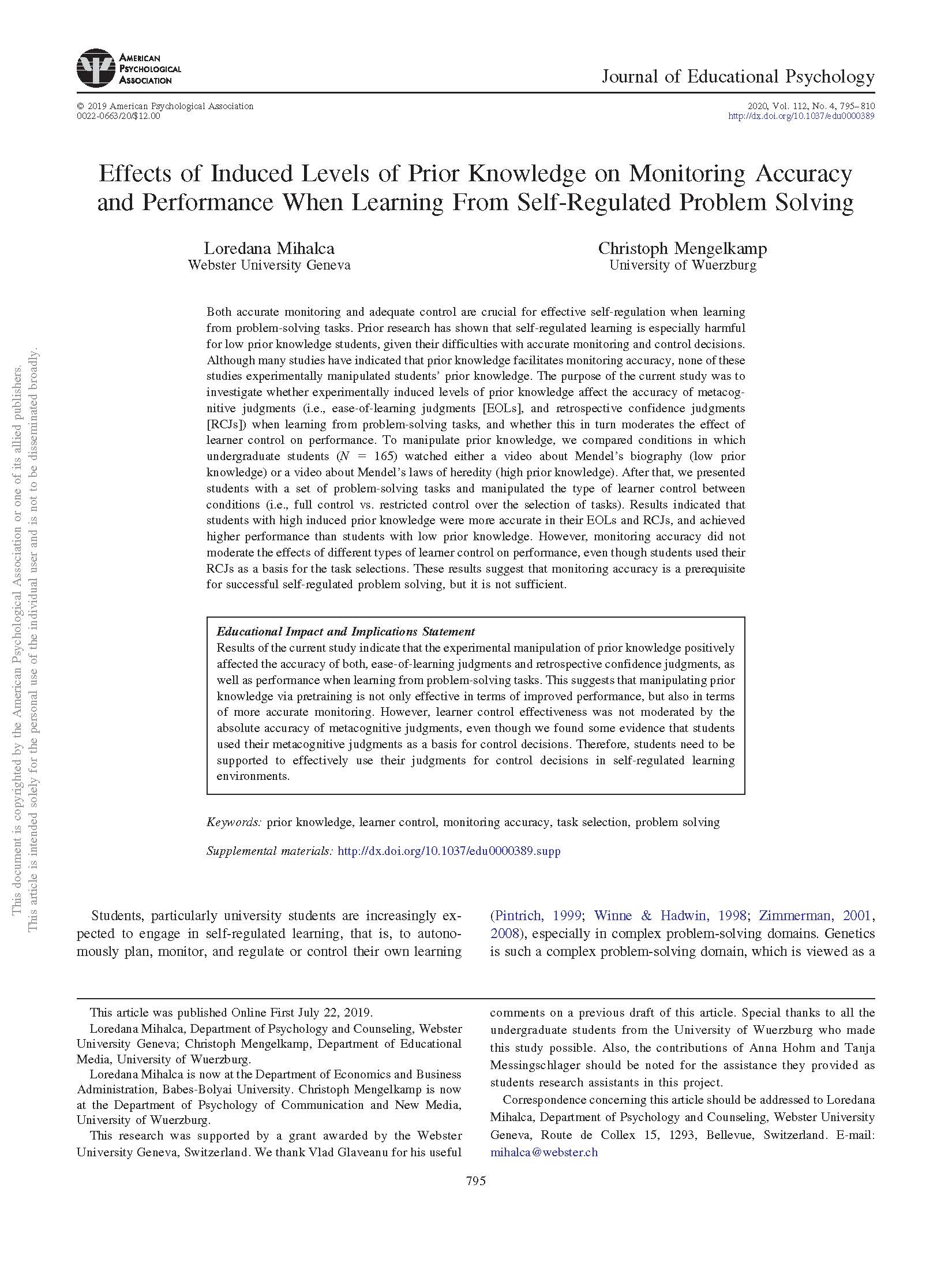|
|
|
Mihalca, L. & Mengelkamp, C. (2020) Journal of Educational Psychology [Domenii conexe, Q1]
Autor:
Ovidiu Ioan Moisescu
Publicat:
09 Aprilie 2021
Mihalca, L. & Mengelkamp, C. (2020) Effects of induced levels of prior knowledge on monitoring accuracy and performance when learning from self-regulated problem solving. Journal of Educational Psychology, 112(4), 795–810.
DOI: https://doi.org/10.1037/edu0000389
✓ Publisher: American Psychological Association
✓ Web of Science Core Collection: Social Sciences Citation Index
✓ Categories: Psychology, educational
✓ Article Influence Score (AIS): 2.954 (2020) / Q1
Abstract: Both accurate monitoring and adequate control are crucial for effective self-regulation when learning from problem-solving tasks. Prior research has shown that self-regulated learning is especially harmful for low prior knowledge students, given their difficulties with accurate monitoring and control decisions. Although many studies have indicated that prior knowledge facilitates monitoring accuracy, none of these studies experimentally manipulated students’ prior knowledge. The purpose of the current study was to investigate whether experimentally induced levels of prior knowledge affect the accuracy of metacognitive judgments (i.e., ease-of-learning judgments [EOLs], and retrospective confidence judgments [RCJs]) when learning from problem-solving tasks, and whether this in turn moderates the effect of learner control on performance. To manipulate prior knowledge, we compared conditions in which undergraduate students (N = 165) watched either a video about Mendel’s biography (low prior knowledge) or a video about Mendel’s laws of heredity (high prior knowledge). After that, we presented students with a set of problem-solving tasks and manipulated the type of learner control between conditions (i.e., full control vs. restricted control over the selection of tasks). Results indicated that students with high induced prior knowledge were more accurate in their EOLs and RCJs, and achieved higher performance than students with low prior knowledge. However, monitoring accuracy did not moderate the effects of different types of learner control on performance, even though students used their RCJs as a basis for the task selections. These results suggest that monitoring accuracy is a prerequisite for successful self-regulated problem solving, but it is not sufficient.

inapoi la stiri  vezi evenimentele
vezi evenimentele  home
home 
|